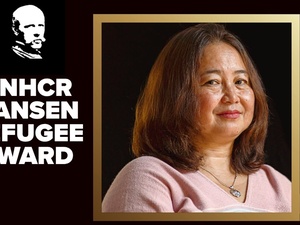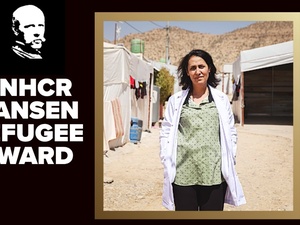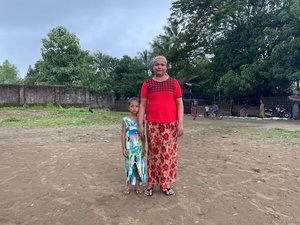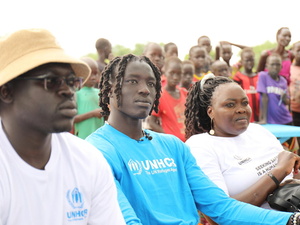Q&A: Colombian director uses road movie to cast light on country's displaced
Q&A: Colombian director uses road movie to cast light on country's displaced
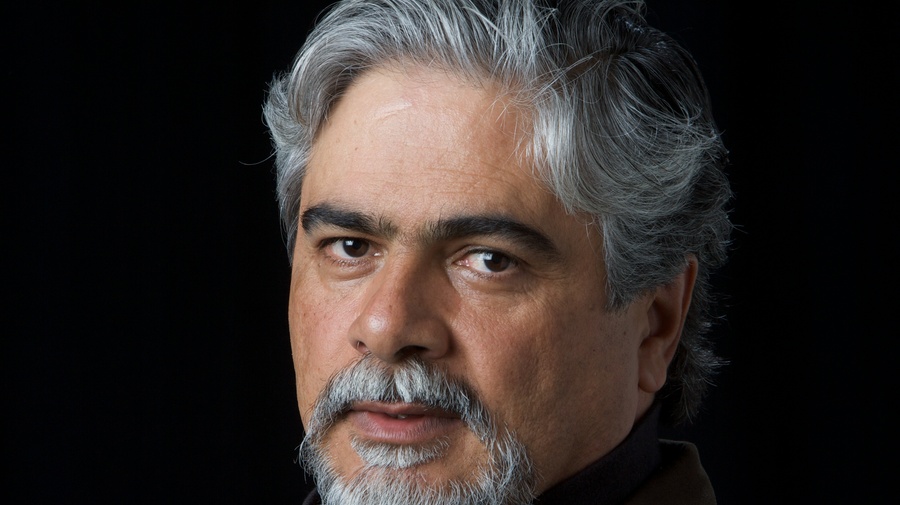
Colombian director Carlos Gaviria and actress Indhira Serrano both met with individuals displaced by conflict in Colombia ahead of making the film 'Portraits in a Sea of Lies'.
BOGOTA, Colombia, July 12 (UNHCR) - Colombian director Carlos Gaviria's movie Portraits in a Sea of Lies revolves around a road trip taken by Marina and her cousin Jairo to recover the land from which they were displaced many years ago. They travel in a battered old Renault from the capital, Bogotá, to the Caribbean coast and each day find themselves more and more haunted by their traumatic past. UNHCR's regional public information officer Francesca Fontanini spoke to Gaviria and actress Indhira Serrano about the film and Colombia's displaced.
Carlos Gaviria:
Where did the idea for the film come from?
I wrote the first version of the script over fifteen years ago. I spent many years studying outside of Colombia and I wanted to make a film about my country. There are many elements in the film that are the result of nostalgia, landscapes, food, tours through the country and the good side of people. When I returned to Colombia and saw how things were, new elements arose for the story, especially issues regarding war, of a country used to living in the midst of an internal conflict, a country that doesn't think it's abnormal that ten percent of the population has been displaced.
What was the greatest difficulty you faced in making the film?
The main challenge was how to present the magnitude of the tragedy. As a filmmaker, I was interested in the phenomenon of displacement from the point of view of the victims, not the numbers. We wanted to focus more on the wounds than on the killings. We hoped to show the consequences of displacement on an individual person especially a child. We heard many stories that were truly heartbreaking.
Do you think the film has helped educate people about the lives of those displaced within their own country?
I think the film has made a small contribution to humanizing the conflict and especially the situation of the victims. Too often the victims of displacement in Colombia are viewed with mistrust and are wrongly suspected of being somehow complicit with the armed group that forced them to flee. This has led some Colombians to react with indifference towards them. When people see the film, the response we get is one of empathy for the main character's story. Outside of Colombia, audiences have been surprised by the magnitude of the problem. Most had no knowledge of the conflict in Colombia and the displacement it has caused.

Colombian actress Indhira Serrano.
Indhira Serrano:
Can you describe your character in the film?
The main character of the film is a child who moves from a rural area to Bogotá and, completely traumatized by the displacement, thinks back to her former life and her old teacher, which is my character, who was very close to her family. Fifteen years later, the girl returns to her village and finds her teacher, who apologizes for not doing more to look after the girl in the aftermath of the tragedy that destroyed her family. I hope that my character embodies the values of friendship, peace and innocence and at the same time the fear that can sometimes override these values.
Did you talk with any internally displaced persons to prepare yourself for this role?
I began on my own, reading many articles and stories about displacement and the impact of the conflict, particularly in rural areas. In recent years, I have also been working with the organization "Kids for a New Planet". They work with children who have been sexually abused and children living in marginalized areas of the capital, Bogotá, as well as displaced children that come there from different parts of the country. This experience gave me an insight into how these children see life, which is completely different from a child who has grown up in normal conditions.
Anything else you learned through making this film?
What a displaced person needs most is a home. Of course they need basics such as food and education because without these there is no way of living. But I think what hurts most is the lack of roots. Coming to a place where you have no connection to anything is a horrible feeling. I think that my country, Colombia, has lost a bit of its sense of community. People are more worried about their safety and what is going on around them and it can be hard for them to understand the lives of the displaced.




